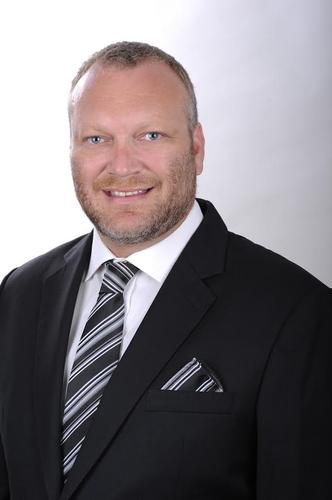
DBS Bank's chief innovation officer Neal Cross
Which banks are successfully creating a culture of innovation? One strong candidate is Singapore’s DBS Bank.
I had a chat with Neal Cross, chief innovation manager at DBS, who told me that he is now responsible for 5 per cent of the innovation targets set by DBS’ CEO, Piyush Gupta.
DBS has built a culture of innovation and is now looking at placing some ‘hard revenue’ targets against innovative projects.
What this means is that every managing director across the bank who reports into the c-suite – including the CEO – has taken on an innovation target. They are asked to either complete a ‘customer journey roadmap’ or take their teams through one.
As Neal, says proudly, “I am a salesman and we wanted to build a culture of innovation. We looked around what others were doing and we did the complete opposite. Innovation has nothing to do with technology – this is about people and behaviour.”
DBS’ innovation team
Neal’s team has grown from 3 to 20 people and he now has S$20 million to set up a new innovation centre. His philosophy around how he established the team –based around seven rules – is perhaps contrary to the way many other innovation groups have been constructed.
His seven rules are:
- Don’t hire technical people
- Utilise ecosystems
- Make it a safe place to fail
- Always be in partnership
- Make the impossible, possible
- Turn passion into action
- Don’t invent.
Neal says that organisations essentially have three options when innovating. They can ‘build’ on existing infrastructure, which essentially means 'putting lipstick on a pig' by digitising what they already have. They can ‘buy’ products that have been rebranded or invest in startups, or they can bite the bullet and evolve the culture.
Piyush Gupta describes DBS as the ‘Goldilocks’ bank – not too big, not too small. This means the bank can more easily innovate than the bigger players in financial services. In fact, the bank worked with 200 startups in 2015, Neal says.
Fintech partnering
Neal admits that in the US$4 trillion global financial services market, new ‘fintech’ organisations are simply innovating faster than banks. There is US$25 billion available to attract talent into this space, he says.
To address this challenge, DBS has what Neal describes as a ‘deep and wide’ program to innovate and engage fintechs.
The company runs a ‘digital mindset hackathon’ that involves senior managers inside its HR, finance, wealth and corporate banking divisions, as well as at branch offices. These executives are asked to set up fintech startups using 52 different teams across four countries.
Each idea is sold to the CEO, chief innovation officer, venture capital firms and HR executives. Already, 8 new products have been created and gone into production as a result of this program.
Neal realised that he could not have done this with his team of 20 staff so he has tapped more than 50 DBS graduates to come up with ideas and take minimum viable products into production.
DBS has also run 22 ‘imaginariums’, themed events that focus on a particular area. For instance, the company ran a workshop on “cracking bitcoin.” Neal’s team also tried ‘crowd sourcing’ ideas, but as expected, they ended up with too many ideas to actually implement.
Another program named ‘Sparkies’, was used to infiltrate the team further. Neal wanted existing DBS staff members to commit one day a month to work on innovative projects.
Finally, DBS is also experimenting with artificial intelligence and robots, which bring the promise of automation and efficiency.
It is clear that the bank is not relying on one strategy to move its business into an innovation mindset. There are multiple points of engagement with management and the staff.
The comprehensive nature of the transition is a beautiful thing but success will be measured in outcomes and there are hard targets that Neal and his colleagues all share.
David Gee is the former CIO of CUA where he recently completed a core banking transformation. He has more than 18 years' experience as a CIO, and was also previously director at KPMG Consulting. Connect with David on LinkedIn.
Join the CIO Australia group on LinkedIn. The group is open to CIOs, IT Directors, COOs, CTOs and senior IT managers.
